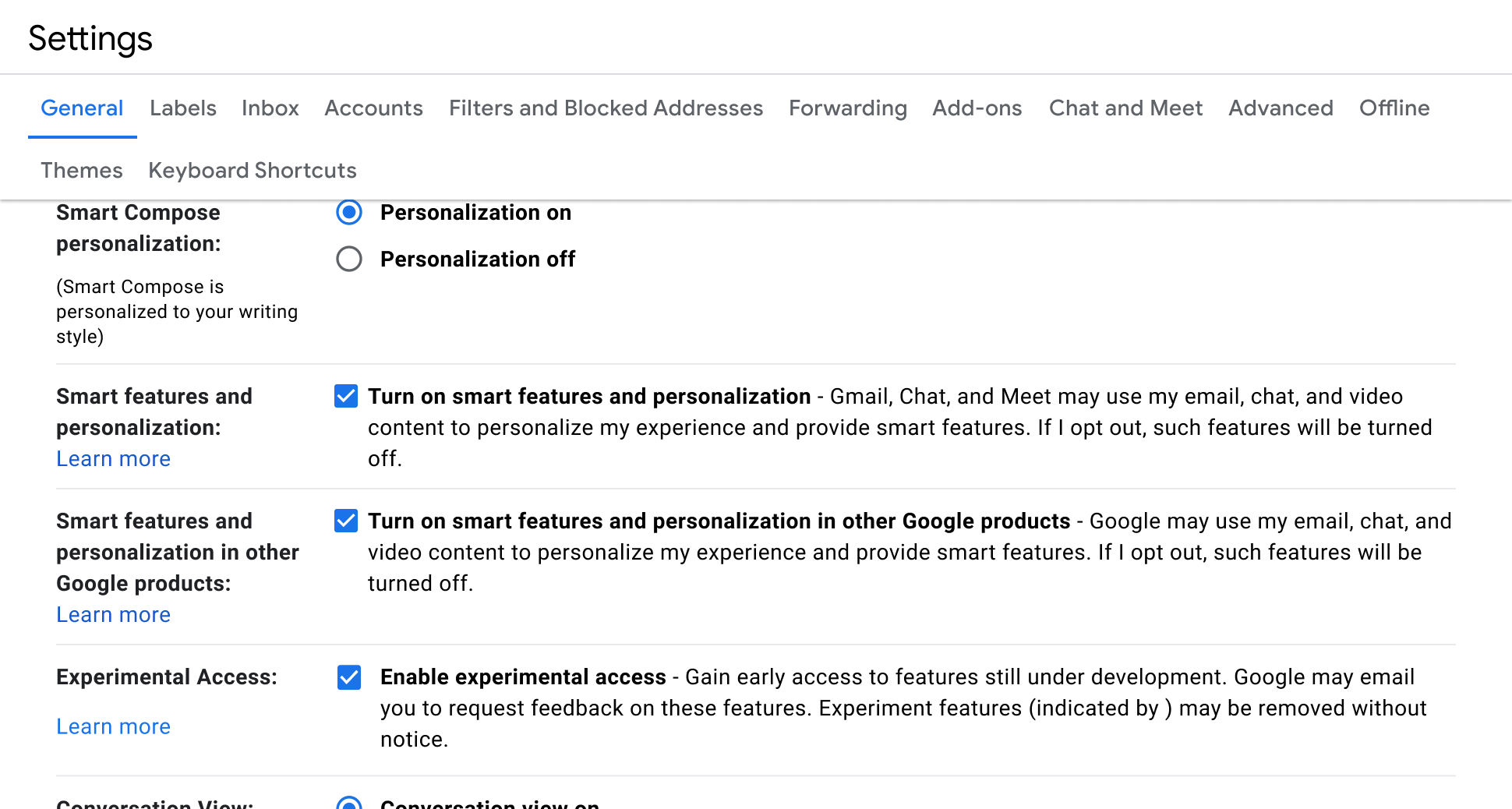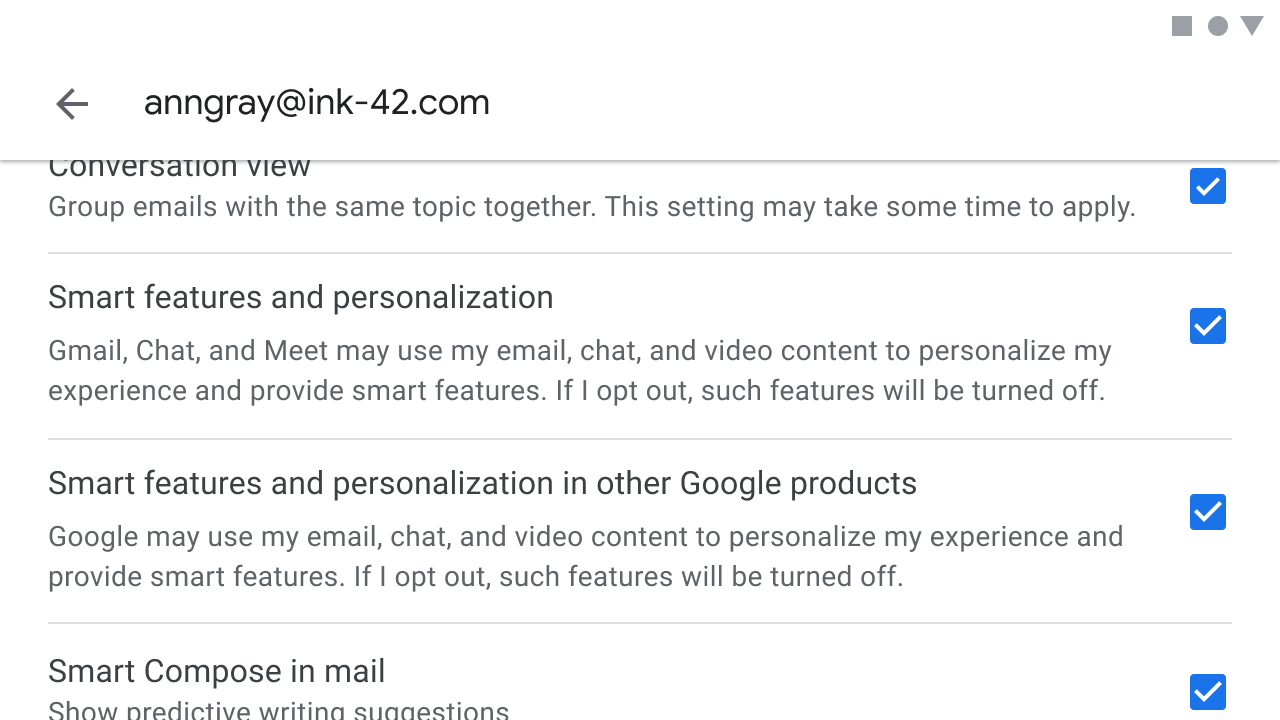New Gmail, Google Chat, and Google Meet settings provide you more control over your information
| |
| | | | | | | To give you more control over your information and help support compliance requirements, we are launching two new settings for Gmail, Chat, and Meet. With these settings you can choose how your information is used in Gmail, Chat, and Meet and in other products across Google. | | | | | | Smart features and personalization in Gmail, Chat and Meet is the first setting, and controls whether your Gmail, Chat, and Meet data can be used to offer smart features within each of these services. Smart features in Gmail, Chat, and Meet that depend on your data include: | | | | | | • | | Summary cards above your email (Package tracking, travel, and more) | | | | | | Smart features and personalization in other Google products is the second setting, and controls whether your Gmail, Chat, and Meet data can be shared with other Google products to enable personalization features. Features in other Google products that depend on Gmail, Chat, and Meet data include: | | | | | | • | | Assistant reminders of your bills due | | | | | | If you want to continue using the above features and more after January 25th, 2021, you need to choose in Gmail settings to keep these features on. If you have already made your choices for these settings on either your mobile Gmail app or desktop, no further action is needed. You can change these options in Gmail settings at any time. Learn more | | | | | | If you're using a desktop, log in to your Gmail account to configure these settings for koemblafg@gmail.com. Learn more | | | | | | If you're using your phone, open your Gmail app (available to install on both iOS and Android) to configure these settings for the koemblafg@gmail.com account. If you're using the mobile Gmail app, but have not seen a prompt about these settings yet, you might have to update your app. If you are unable to update your app, you can still configure these settings from a desktop browser as described above. Learn more | | | | | | Thanks for choosing Gmail. | | | | | | | | |  | Google Ireland Ltd,
Gordon House, Barrow Street,
Dublin 4, Ireland. | | | | This email can't receive replies. You have received this service announcement so we could provide you with essential information about using your Gmail email address. | | | | | | | |






